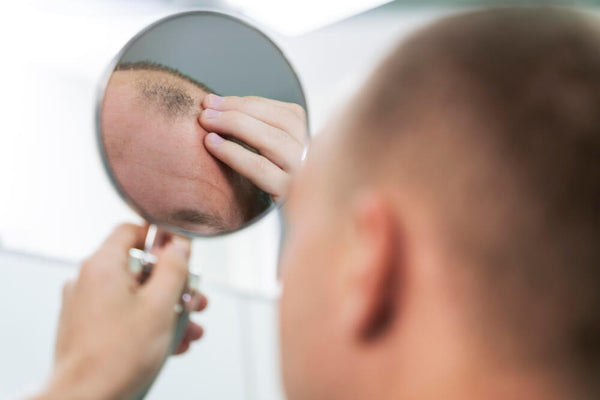I'll never forget when Alicia walked into my Buckhead clinic. She'd seen three different dermatologists for her thinning hair. Each time, the story was the same: quick glance at her scalp, "it's female pattern hair loss," prescription for minoxidil. When it didn't work, they told her to "learn to live with it."
Meanwhile, her part kept widening, her edges were disappearing, and she was spending a fortune on hair fibers to cover the thinning. The worst part? None of those doctors ever asked about her heavy periods, her crushing work stress, or the fact that her mother has thyroid issues.
This is the problem with standard dermatology for hair loss—it treats what's happening on your scalp without investigating what's happening in your body.
The 3 Reasons Standard Dermatology Falls Short for Black Women
1. The 15-Minute Time Crunch
Most dermatology appointments are designed for quick skin checks. They're not set up for the detective work hair loss requires. Understanding why your hair is thinning means digging into your health history, your stress levels, your nutrition—things that take more than 15 minutes to uncover.

2. The "One-Size-Fits-All" Treatment Approach
Minoxidil and spironolactone might help some women, but they're band-aids, not cures. If your hair loss is being driven by iron deficiency, gut inflammation, or CCCA, these standard treatments will disappoint you every time.
3. The Cultural Blind Spot
How many dermatologists truly understand the unique needs of Black hair? The difference between CCCA and regular thinning? Why telling you to "stop wearing braids" isn't helpful advice? Most weren't trained in these nuances.
How Our Approach Actually Finds the Root Cause
When you come to Nina Ross Hair Therapy, you're not getting a quick scalp check. You're getting a comprehensive investigation into why your hair is struggling.
-
We Start with Advanced Diagnostics
While most dermatologists might do a quick visual exam, we use trichoscopy to see your follicles at 200x magnification. This lets us spot the early signs of CCCA, inflammation, and scarring that naked eyes miss.
-
We Run the Right Labs
Your standard thyroid test might come back "normal," but we also check ferritin levels for iron deficiency, full thyroid panels beyond just TSH and tests for other hormones and inflammation markers.
-
We Connect Your Hair to Your Whole Health
That thinning hair might be telling us about issues like the fibroids causing heavy periods and iron deficiency, the gut issues preventing nutrient absorption, the PCOS driving up your androgens or even the chronic stress spiking your cortisol

Treatments That Actually Work for Complex Hair Loss
Once we understand your unique root causes, we have tools most dermatologists don't offer:
-
For Scarring Alopecia (CCCA):
We use exosome therapy to calm the autoimmune attack and PRP to stimulate regeneration in damaged areas. This isn't about growth—it's about stopping the destruction.
-
For Hormonal Hair Loss:
Beyond spironolactone, we use bioidentical hormone balancing and targeted DHT blockers that don't come with scary side effects.
-
For Nutritional Deficiencies:
We don't just tell you to "eat better." We’ll create personalized supplement plans that’ll be based on your actual lab results and include only those medical-grade nutraceuticals that your body can actually absorb.
-
For Chronic Inflammation:
We address the gut health, food sensitivities and environmental triggers that usually keep your scalp irritated and sore - which results in eventual hair loss..
The Truth About "Quick Fix" Hair Treatments
That laser cap? Might help if your only issue is blood flow. Minoxidil? Can work if you're not dealing with scarring alopecia. But if you have multiple factors driving your hair loss—which most Black women do—you need a multi-pronged approach.
I've seen too many women waste thousands on single solutions that only address one piece of their puzzle.
Ready for a Different Kind of Hair Loss Consultation?
If you're tired of quick glances and generic prescriptions, book your Hair Therapy Evaluation with us for just $99. We’ll do the detective work to find your root causes and create a plan that actually addresses them.














